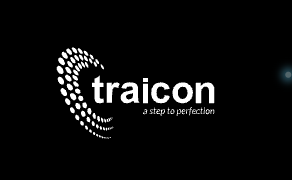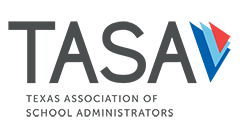























Future of Learning
Education is undergoing a rapid transformation under the influence of artificial intelligence and EdTech. These innovations make learning not only more accessible and efficient, but also deeply personalised. These days, it is becoming evident: traditional approaches are fading into the background, giving way to flexible, adaptive and technological formats.
Current trends in education
A key trend is AI-powered personalised learning. Algorithms analyse a student's level of knowledge, learning style and pace, adapting content to suit their needs. This not only bridges gaps, but also increases motivation by making the process meaningful.
Intelligent Tutoring Systems (ITS), enhanced by generative AI, are changing the approach to learning. They generate assignments, conduct interactive dialogues and instantly adjust the trajectory, increasing engagement.
VR/AR technologies create immersive environments, from virtual experiments to 3D anatomy studies. These solutions turn abstract concepts into visual experiences, which is so important for the digital generation.
There is a growing demand for microcredentials - short courses with digital certificates. They allow for the targeted development of career-relevant skills, making education flexible.
The role of the educator is transforming: AI is taking over routine tasks such as checking assignments and planning, freeing up time for soft skills development and individual work.
AI and EdTech are radically rethinking traditional education, strengthening it and redefining it to meet the demands of the new times.
Artificial intelligence in education: what event formats are in trend?
Conferences and summits dedicated to exploring the place of artificial intelligence in education have become key platforms for sharing experiences, finding solutions and shaping the future of EdTech. However, the diversity of their formats often raises questions: what is different about AI Events? Which event is suitable for universities and which for schools? Let's take a look at the specifics of each type of event below.
AI Education Conference: broad scope
AI and education conferences are large-scale events covering topics ranging from technological innovation to ethical dilemmas. Their audience is diverse - teachers, school administrators, EdTech developers, IT specialists and even politicians. They combine theoretical discussions and practice: participants discuss trends like adaptive learning or assessment automation, attend workshops on working with generative AI to create learning materials, and learn about the latest technologies at exhibitions. For example, sessions might focus on integrating ChatGPT into curricula or how to predict student dropout using analytics.
These AI for education conferences often last 3-5 days and are held at a regional or national level, making them accessible to local experts. But there are also more global scales, like an international conference on artificial intelligence in education. These conferences form a scientific base and set a vector for future developments.
AI in Higher Education Conference - focus on the educational niche
This format focuses on AI in the context of higher education. Their target audience includes university professors, IT directors, researchers and data scientists. The focus is on current challenges such as revising pedagogical approaches, academic data management, and combating plagiarism. Discussions include automating teaching, creating intelligent assistants for students, using generative models for academic work, and challenges related to academic ethics.
For example, the AI higher education conference includes strategy sessions on embedding AI in the curriculum, case studies from the academic environment, and an AI education workshop on creating personalised learning trajectories. These events are often shorter than the former, last 1-3 days and are organised in an international format, reflecting the global nature of higher education issues.
AI in Education Summit - practice and innovation
AI for education summit is a high-intensity event aimed at leaders focused on breakthrough ideas and rapid implementation. Participants are heads of educational institutions, founders of EdTech startups, investors and international experts. Unlike conferences, summits emphasise strategy and collaboration: keynote speakers share inspiring cases (for example, about creating educational robots), and master classes teach how to develop AI roadmaps for schools or universities. Hackathons within the framework of summits become a platform for prototyping - for example, AI-based eco-education applications. The geography of such events is usually global, and their duration rarely exceeds 2 days, which corresponds to their dynamic format.
Different paths to a single goal
The key difference is in depth and scope. AI conference education provides an overview, summits focus on innovation, and university events address the specific challenges of a given educational niche. One thing they all have in common is that they all reflect the transition to an education where technology does not replace educators, but enhances their role, opening up new opportunities for students and teachers.
How to effectively let the world know about your educational event
Promoting an educational event is more than just sending out announcements for the ‘AI in education conference 2025’ or the more specialised ‘AI in higher education conference 2025’. It is an opportunity to create a community of like-minded people around your idea, whether it's an AI conference or a workshop for educators. How can you make your project stand out on the global stage?
Create a digital face for your event
The landing page is your event’s first impression - think of it as a digital business card: clear, concise, and packed with the essentials. Make sure the registration form stands out and is easy to find.
Take a place on the ‘event map’
Your audience is already looking for events on specialised platforms. Sign up on aggregators like allai.events, where EdTech and AI enthusiasts congregate. Familiarise yourself with pricing and use additional options to promote to the max.
Capture attention on social media
Social media is a space for dialogue. Announcements, banners, mini-interviews with organisers and speakers, countdowns and targeted advertising can help you reach as large an audience as possible.
Start a ‘chain reaction’ through partnerships
Team up with those who have a vested interest in your success. Universities, EdTech startups and research centres are often willing to help with promotion in exchange for the participation of their experts.
Engage those who are trusted
Influencers and media outlets are the bridge between you and your audience. Find bloggers in an educational niche, even those with a small audience. Invite them to spread the word about the event or get involved. Send a press release to relevant media outlets, blogs and of course themed publications.
Stay curious
Keep exploring, read thematic blog, and stay up to date with the latest news - the world of AI is constantly evolving. What’s trending today could well become the foundation for your next breakthrough event tomorrow.
